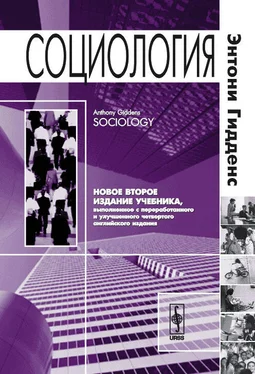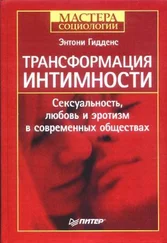Vidal, Denis 1998. When the gods drink milk! Empiricism and belief in contemporary Hinduism // South Asia Research, 18.
Vogler, Carolyn and Jan Pahl 1994. Money, power and inequality in marriage // Sociological Review, 42.
Wajcman, Judy 1998. Managing like a Man: Women and Men in Corporate Management. Cambridge: Polity.
Walby, Sylvia A. 1986. Gender, class and stratification: toward a new approach // Rosemary Crompton and Michael Mann (eds.). Gender and Stratification. Oxford: Blackwell.
Wally, Sylvia 1990. Theorizing Patriarchy. Oxford: Blackwell.
Walker, Carol 1994. Managing poverty // Sociology Review, April.
Walker, Nick 1995. Could you be a fitness junkie? // Independent, 4 December.
Wallis, Roy 1984. The Elementary forms of New Religious Life. London: Routledge and Kegan Paul.
Warde, Alan and Kevin Heatherington 1993. A changing domestic division of labour? Issues of measurement and interpretation // Work, Employment and Society, 7.
Waterhouse Inquiry 2000. Lost in Care, report of the Tribunal of Inquiry into the Abuse of Children in Care..., chaired by Sir Ronald Waterhouse. London: Stationery Office.
Webb, Rob and Hal Westergaard 1991. Social stratification, culture and education // Sociology Review, 1.
Weber, Max 1951. The Religion of China. N. Y.: Free Press.
Weber, Max 1952. Ancient Judaism. N. Y.: Free Press.
Weber, Max 1958. The Religion of India. N. Y.: Free Press.
Weber, Max 1963. The Sociology of Religion. Boston, Mass.: Beacon.
Weber, Max 1976. The Protestant Ethic and the Spirit of Capitalism. London: Alien and Unwin; first pub. 1904–1905.
Weeks, Jeffrey 1986. Sexuality. London: Methuen.
Weeks, Jeffrey et al. 1999. Partners by choice: equality, power and commitment in non-heterosexual relationships // Graham Alien (ed.). The Sociology of the Family: A Reader. Oxford: Blackwell.
Weitzman, Lenore et al. 1972. Sexual socialization in picture books for preschool children // American Journal of Sociology, 77.
Wells, John 1995. Crime and Unemployment. London: Employment Policy Institute.
Westergaard, John 1995. Who Gets What? The Hardening of Class Inequality in the Late Twentieth Century. Cambridge: Polity.
White, Michael and Malcolm Trevor 1983. Under Japanese Management: The Experience of British Workers. London: Heinemann.
Wilkins, Leslie T. 1964. Social Deviance: Social Policy: Action and Research. London: Tavistock.
Wilkinson, Helen 1994. No Turning Back. London: Demos.
Wilkinson, Helen and Geoff Mulgan 1995. Freedom’s Children: Work, Relationships and Politics for 18–34 year olds in Britain Today. London: Demos.
Wilkinson, Richard 1996. Unhealthy Societies: The Afflictions of Inequality. London: Routledge.
Williams, Simon J. 1993. Chronic Respiratory Illness. London: Routledge.
Willis, Paul 1977. Learning to Labour: How Working Class Kids Get Working Class Jobs. London: Saxon House.
Willmott, Peter 1963. The Evolution of a Community: A Study of Dagenham after Forty Tears. London: Routledge and Kegan Paul.
Willott, Sam and Christine Griffin 1996. Men, masculinity and the challenge of long-term unemployment // Mairtln Mac an Ghaill (ed.). Understanding Masculinities. Buckingham: Open University Press.
Wilson, Bryan 1982. Religion in Sociological Perspective. Oxford: Oxford University Press.
Wilson, James Q. and George Kelling 1982. Broken windows // Atlantic Monthly, March.
Wilson, Jamie 2000. One third of mothers forced out of full-time working // Guardian, 24 January.
Wilson, William Julius 1978. The Declining Significance of Race: Blacks and Changing American Institutions. Chicago: University of Chicago Press.
Wilson, William Julius 1999. When work disappears: new implications for race and urban poverty in the global economy // Ethnic and Racial Studies, 22.
Wirtb, Louis 1938. Urbanism as a way of life // American Journal of Sociology, 44.
Wood, Stephen 1989. The transformation of work? // Stephen Wood (ed.). The Transformation of Work? Skills, Flexibility and the Labour Process. London: Unwin Hyman.
Woolgar, Steve and Dorothy Pawluch 1985. Ontological gerrymandering: the anatomy of social problems explanations // Social Problems, 32.
World Bank 2000. World Development Report. N.Y.: Oxford University Press.
Woirall, Anne 1990. Offending Women: Female Lawbreakers and the Criminal Justice System. London: Routledge.
Worsley, Peter 1970. The Trumpet Shall Sound: A Study of «Cargo» Cults in Melanesia. London: Paladin:
Wright, Erik Olin 1978. Class, Crisis and the State. London: New Left Books.
Wright, Erik Olin 1985. Classes. London: Verso.
Wright, Erik Olin 1997. Class Counts: Comparative Studies in Class Analysis. Cambridge: Cambridge University Press.
Wyatt, Edward 1999. Investors are seeing profits in nation’s demand for education // New York Times, 4 November.
Young, Jock 1998. Breaking windows: situating the new criminology // Paul Walton and Jock Young (eds.).
The New Criminology Revisited . London: Macmillan.
Young Jock 1999. The Exclusive Society: Social Exclusion, Crime and Difference in Late Modernity. London: Sage.
Young Michael and Tom Schuller 1991. Life after Work: The Arrival of the Ageless Society. London: Harper Collins.
Young Michael and Peter Willmott 1973. The Symmetrical Family: A Study of Work and Leisure in the London Region. London: Routledge and Kegan Paul.
Zammuner, Vanda Lucia 1987. Children’s sex-role stereotypes: a cross-cultural analysis // Phillip Shaver and Clyde Hendrick, Sex and Gender. London: Sage.
Zeitlin, Irving 1984. Ancient Judaism: Biblical Criticism from Max Weber to the Present. Cambridge: Polity.
Zeitlin, Irving 1988. The Historical Jesus. Cambridge: Polity.
Zerubavel, Eviatar 1979. Patterns of Time in Hospital Life. Chicago: University of Chicago Press.
Zerubavel, Eviatar 1982. The standardization of time: a sociohistorical perspective // American Journal of Sociology, 88.
Zimbardo, Philip 1972. Pathology of imprisonment // Society, 9.
Zubaida, Sami 1996. How successful is the Islamic Republic in Islamizing Iran? // J. Beinin and J. Stork (eds.). Political Islam: Essays from the Middle East Report. Berkeley: University of California Press.
Zuboff, Sboshana 1988. In the Age of the Smart Machine: The Future of Work and Power. N. Y.: Basic Books.
Основные понятия и важнейшие термины
Абсолютная бедность( absolute poverty ). Бедность, определяемая в рамках минимальных условий, необходимых для поддержания нормальной жизни — 276, 295, 305.
Авторитарная личность( authoritarian personality ). Набор особых личностных характеристик, включая ригидность, нетерпимость в мировоззрении и невозможность принятия различных точек зрения — 227.
Авторитарные государства( authoritarian states ). Политические системы, в которых нужды и интересы государства ставятся выше проблем рядовых граждан и народное участие в политических делах воспрещено или строго ограничено — 375, 376, 394.
Читать дальше

![Пирс Энтони - Воплощения бессмертия. Том 2 [Компиляция, сетевое издание]](/books/25859/pirs-entoni-voplocheniya-bessmertiya-tom-2-kompilyac-thumb.webp)
![Пирс Энтони - Воплощения бессмертия. Том 1 [Компиляция, сетевое издание]](/books/25861/pirs-entoni-voplocheniya-bessmertiya-tom-1-kompilyac-thumb.webp)








